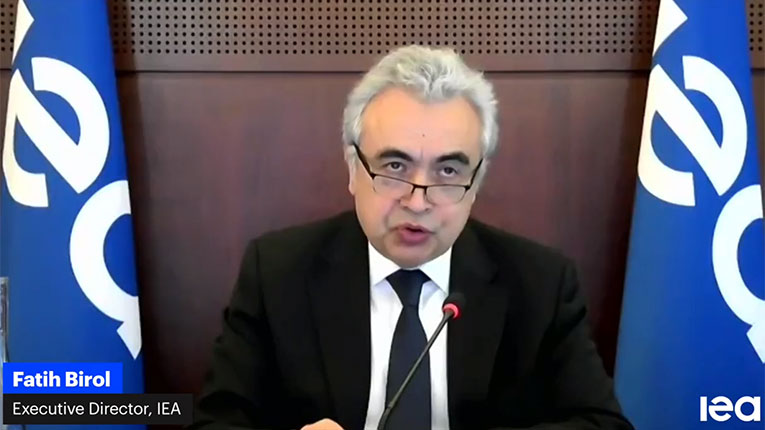The International Energy Agency has presented the EU with 10 measures to reduce its dependence on Russian natural gas within a year, without it having to abandon its environmental objectives set out in the Green Deal, Euractiv France reports.
“In 2021, the European Union imported 155 billion cubic metres of natural gas from Russia, accounting for around 45% of EU gas imports and close to 40% of its total gas consumption,” the IEA wrote in its press release published on Thursday.
With Russia waging war against Ukraine, the situation is now urgent. “Russia’s use of its natural gas resources as an economic and political weapon shows that Europe must act quickly to be prepared for considerable uncertainty over Russian gas supplies next winter,” said IEA executive director Fatih Birol.
And according to the European Parliamentary Research Service think tank, “the future of Europe’s gas supply from Russia could become uncertain, whether due to a politically-motivated interruption of deliveries, uncertainty over energy payments under the sanctions imposed on Russia, or damage to the Ukraine pipelines due to fighting.”
Aware of the risks to Europe’s energy security, French President Emmanuel Macron, whose country currently holds the rotating EU Council presidency, announced in a televised address on Wednesday that decisions on “a strategy for European energy independence” could be taken at the informal EU summit from 10-11 March in Versailles.
“We can no longer depend on others, and in particular on Russian gas, to move around, to heat ourselves, to run our factories. That is why, after having decided, for France, to develop renewable energies and to build new nuclear reactors, I will defend a strategy of European energy independence,” the French leader said in his nation’s address.
According to the IEA, a dozen measures could enable the bloc to reduce its imports of Russian natural gas in one year.
These include not signing new gas contracts with Russia, replacing Russian supplies with gas from alternative sources, introducing minimum gas storage obligations and accelerating the deployment of solar and wind energy.
Also on the list: maximising electricity generation from bioenergy and nuclear power, adopting short-term windfall tax measures to protect electricity consumers from high prices, accelerating the replacement of gas boilers with heat pumps and accelerating energy efficiency improvements in buildings and industry. Encouraging consumers to temporarily reduce their thermostat temperature by 1°C and intensifying efforts to diversify and decarbonise sources of flexibility in the electricity system were also mentioned.
